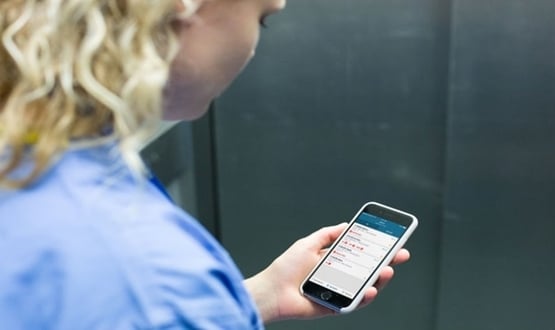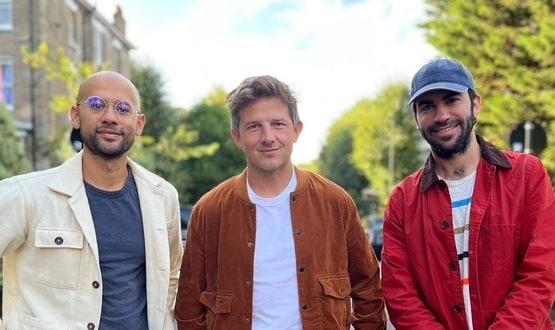DeepMind’s Streams app saves £2,000 per patient, peer review finds
- 31 July 2019

DeepMind’s Streams app could save the NHS an average of £2,000 per patient by alerting clinicians to acute kidney injury sooner, a peer review has found.
The review, published today, found the app reduced the average cost of admission for a patient with acute kidney injury (AKI) by 17%.
After implementing Streams, which provides clinicians with real time data relevant to AKI management, the average healthcare costs per patient were reduced by £2,123.
Streams has been in use at the Royal Free London NHS Foundation Trust since early 2017. Shortly after rolling the app out, clinicians said it was saving them up to two hours a day.
Before the tool was implemented about 12% of AKI cases were missed, but that number has reduced to 3% with clinicians responding to urgent cases within 15 minutes or less, the peer review found.
Clinicians at Imperial College Healthcare NHS Trust started using the app in January 2019.
Dr Dominic King, the health lead for Google DeepMind, told Digital Health: “There’s so many lengthy delays in problems being identified and then getting an expert to see a patient in need.
“The fact that, at The Royal Free, an expert looks at every acute kidney injury alert there within a median time of 14 minutes, 24/7, is, I think, pretty remarkable.
“Also, treatment times improved and, I think quite uniquely, we’ve shown that through digital health intervention we can reduce costs.”
An estimated 11% of deaths in hospital result from failure to recognise, and treat, deterioration.
Acute kidney injury affects up to 15% of hospital admissions, costing the NHS in excess of £1billion per year.
But the review of the app also found that e-alerts alone “might fail to improve outcomes” and appropriate training was needed for a digital solution to be successful.
“However, when planning and implementing digital information innovations in health care, the following factors should also be considered: the provision of clinical training to effectively manage early detection, resources to cope with additional workload, support to manage perceived information overload, and the optimisation of algorithms to minimize unnecessary alerts,” the paper said.
Dr King said it “did not come as a surprise” that to adopt technology a culture change is necessary.
“We recognise that an app isn’t going to transform care itself, it requires the support and involvement of clinicians and patients,” he said.
“Most clinicians know that that is a good thing, but they’ve got to change the way they work and we went into this appreciating that.
“I think hospitals need to think very carefully about how they introduce technology to make sure it has the impact it can do.”
Tech giant Google bought DeepMind for £360 million in 2014. In November last year it was announced their Streams app would also be moving over to Google.
Streams is currently run on the NHS algorithm for detecting AKI, but early findings from its use at Royal Free suggest that, in order to further improve patient outcomes, clinicians need to be able to intervene before AKI is detected by the algorithm.
To address this need, Google DeepMind has developed a artificial intelligence that could one day give clinicians a 48-hour head start in treating AKI.
Working with the US Department of Veterans Affairs, AI technology was applied to a comprehensive de-identified electronic health record dataset and was able to accurately predict acute kidney injury in 90% of patients whose condition deteriorated to the point of needing dialysis.
The technology will eventually be integrated with the Steams app to better detect patients at risk of deterioration.
Speaking about the research at Health Plus Care in June, Dr King said AI algorithms had the potential to transform how a clinician plans a patient’s care.
“Medical imaging is where we are at the forefront, but I’m far more excited about the potential of using AI to look at a medical record and electronic health record data to make predictions,” he said in his keynote speech.
It’s hoped the AI will eventually be used to predict other conditions that cause acute deterioration, including sepsis.





6 Comments
How are individuals going to beinvolved with decision making after having their information processed? Will they have access to the same information as a clinician and in what form?
The headline is misleading and I agree the algorithm has been available for a long time. Many trusts already use it to provide notifications of patients with AKIs. It’s the 48 hour prior prediction as mentioned by Jason that’s more interesting. Can you please expand on this, that’s the real news story.
While a renal model for digital decision support is unsurprising there needs to be serious scepticism about the numbers being quoted at risk, which have grown with exaggeration and indistinct semantics. The AI and digital development should eschew marketing overstatement by enthusiasts.
The only problem with this interpretation is that the paper on which it is based wasn’t evaluating Streams.
“We developed a digitally enabled care pathway for acute kidney injury (AKI) management incorporating a mobile detection application, specialist clinical response team and care protocol” https://www.nature.com/articles/s41746-019-0100-6
“Direct real-time communication of AKI cases (‘e-alerts’) might be expected to expedite effective treatments. However, in a randomised clinical trial, automated AKI e-alerts delivered via mobile text-messaging yielded no improvement in care processes (rates of renal consultation, contrast and other nephrotoxin administration) or clinical outcome (a composite endpoint of relative maximum change in creatinine, dialysis and death),14 perhaps because processes of care were not formally modified”
It does not look as though Streams is – yet – making a significant difference to outcomes – & savings quoted are based on presumed reduction in length of stay.
Hasn’t this already been available to all trusts for at least the last 10 years. I know of at east two system which pick up lab results and send alerts if various AKI key stages identified.
Seems like sensation grabbing by Google Deepmind to me.
Streams itself is nothing remarkable. The algorithm can be implemented in other ways using lab data. The potential for predictive alerts up to 48 hours prior is what’s really exciting.
Comments are closed.